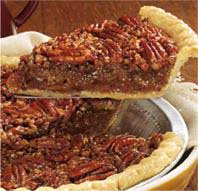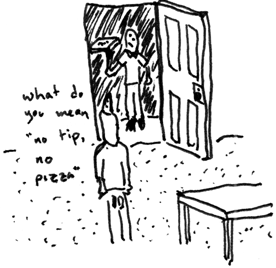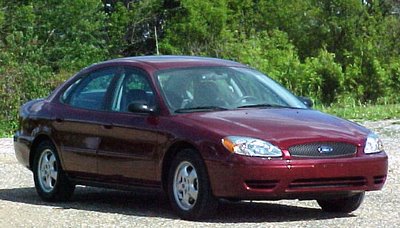Is the whole area of tipping in the USA considered to be a quagmire? Who should you tip and how much should you tip them? I don't know if you're familiar with Seinfeld (an American sit-com set in New York), but who to tip and how much to tip is a theme that quite often crops up. Here's a few examples (Source).
In a discussion about wood being delivered for a fireplace, in The Robbery:
JERRY: Whatta ya tip a "wood guy"?
Then, when discussing getting a gardener, in the same scene:
JERRY: Would I have to get a gardener?
ELAINE: Yeah, you can get a gardener.
JERRY: You tip him?
ELAINE: You can.
GEORGE: [to Elaine] You don't tip a gardener!
ELAINE: You can tip a gardener.
GEORGE: You don't need a gardener.
From The Trip 2:
GEORGE: How much do you tip a chamber maid?
GUY: I don't know, five bucks a night.
JERRY: No, a dollar, two tops.
This clip is from The Airport (by the way, a skycap is an airport porter):
SKYCAP: Where you goin'?
JERRY: Uh, JFK. [To Elaine] I need some small bills for a tip. You got anything?
ELAINE: Yeah, you want five?
JERRY: Gimme ten.
ELAINE: You're giving him ten dollars?
JERRY: Well, we got three bags.
ELAINE: That's a pretty big tip...
JERRY: That's what they get!
ELAINE: They don't get that much.
JERRY: Let's ask him.
ELAINE: We can't ask him...
JERRY: Let's see what he says.
ELAINE: Jerry, we don't have time for this...
JERRY: Two seconds. [To Skycap] Excuse me, my friend and I here, we were having a discussion and we were wondering what you usually get for a tip.
SKYCAP: Depends on the person, depends on the bag.
JERRY: Uh, how about a couple of people like us.
SKYCAP: People like you? I wouldn't expect much, you don't even look like you know what you're doing...
JERRY: C'mon, seriously...
SKYCAP: Well, since you asked, usually, I get five dollars a bag.
JERRY: What!?
ELAINE: What!?
SKYCAP: That's right.
JERRY: Five bucks a bag?
ELAINE: Five dollars a bag? I don't think so.
SKYCAP: Look, you asked, I told you.
ELAINE: You got some nerve trying to take advantage of us...
JERRY: All right, look, we're late. Thank you very much...
ELAINE: You're lucky I don't report you...
JERRY: Fight the power, Lainey...
[As the two leave, the Skycap checks their baggage. Jerry's two pieces first:]
SKYCAP: JFK...
[Then Elaine's:]
SKYCAP: ...Honolulu.
In England, it is rare that anyone offers to help. If one is at an airport or train station and needs a trolley for one's bags, or a porter to help, one asks for help and gets it because it's that person's job to help. This usually tends to suit us just fine.
When we first arrived in the US, a man with a trolley asked us if we'd like some help with our bags (we had 4 suitcases and 4 hand-luggage bags). When we got on the bus that took us from the terminal to the car hire place, the driver was very keen to help us with our bags. We were pleased with this help because we had a lot of heavy baggage. We were told that $1 a bag is a standard tip. If a driver takes 10-15 bags per trip and makes one trip every hour, he/she could get about $10 per hour in tips. Add this to their wage and it's a pretty good rate. However, I dare say that without these tips, it may be difficult for the man to make ends meet.
We were told that we should tip the removal men who unpacked our belongings when our container arrived from the UK. We were told that $20 a head was the expected amount. Although we dutifully did this, because we were keen to get to grips with the American way of doing things, I must admit that I rather begrudged this tip mainly because the men did nothing but complain. They whinged about the heaviness of every box. Their attitude towards being offered drinks and cakes as refreshment was also poor -- no politeness or thanks. They hung around after they'd finished, waiting for their tip.
What's interesting is that history repeats itself. What has been seen in Europe can also be seen in the US. People tip; the amounts of the tips increase gradually over time because it is a means of the well-off salving their consciences regarding the socioeconomic state of those that serve them; the tips supplement the income of the lower classes to an extent that they become expected; failure to tip begins to bear negative consequences; the upper classes introduce measures to curtail tipping; the practice of tipping gradually increases again so that the cycle is renewed.
Tipping, in the past, has been considered un-American and had even been made illegal in places. It was considered that a person should receive a good wage for doing their job and that the practice of tipping just accentuates socioeconomic differences. I think that this is pretty much the attitude in the UK today. However, "When in Rome...". If the current US social structures dictate that tips are necessary, and if I am going to live here, then I suppose that I have to fit in with this.
The USA seems to be at the stage in the cycle where tips are expected. If one is not received, a person may be offended and may even provide a service that is below par next time they deal with you.
If you're interested in knowing a bit more about tipping, try reading
Tipping: An American Social History of Gratuities.
Here's a few guides to tipping:
HowStuffWorks: How Tipping WorksBBC: International Tipping etiquetteFindALink: Tipping etiquetteAbsolute beginners: Tips and Tipping


 Pecan pie is the quintessential Thanksgiving dessert. We were lucky enough to be invited to an American family's home for Thanksgiving. A couple of days before, they phoned and asked us if we'd like to bring a pudding. Our initial thoughts were of banoffee pie -- a staple of students. However, one quick google search later, we decided that "
Pecan pie is the quintessential Thanksgiving dessert. We were lucky enough to be invited to an American family's home for Thanksgiving. A couple of days before, they phoned and asked us if we'd like to bring a pudding. Our initial thoughts were of banoffee pie -- a staple of students. However, one quick google search later, we decided that "
 (
(


 How can I have a blog on Americanization without discussing Halloween? Halloween is such a big festival in the US and we just experienced it for the first time a couple of weeks ago.
How can I have a blog on Americanization without discussing Halloween? Halloween is such a big festival in the US and we just experienced it for the first time a couple of weeks ago. Perhaps I'm being too hasty in saying that the Pagans have won. In fact, many Christians resist the pull of Halloween. In the UK, may Christians just don't partake. Others actively resist by holding "alternative" celebrations for their youth clubs, to desuade them from going to the school's Halloween disco. All Saints' Day has not yet been forgotten.
Perhaps I'm being too hasty in saying that the Pagans have won. In fact, many Christians resist the pull of Halloween. In the UK, may Christians just don't partake. Others actively resist by holding "alternative" celebrations for their youth clubs, to desuade them from going to the school's Halloween disco. All Saints' Day has not yet been forgotten. Although, in the USA, the celebration of Halloween is very much tied in with the Harvest festival (eg. the use of pumpkins and scarecrows), it seems to me that in the UK it is becoming more and more tied in with Guy Fawkes. I think that this is mainly related to the proximity of the two festivals (October 31st and November 5th). Let me know what you think.
Although, in the USA, the celebration of Halloween is very much tied in with the Harvest festival (eg. the use of pumpkins and scarecrows), it seems to me that in the UK it is becoming more and more tied in with Guy Fawkes. I think that this is mainly related to the proximity of the two festivals (October 31st and November 5th). Let me know what you think.











